
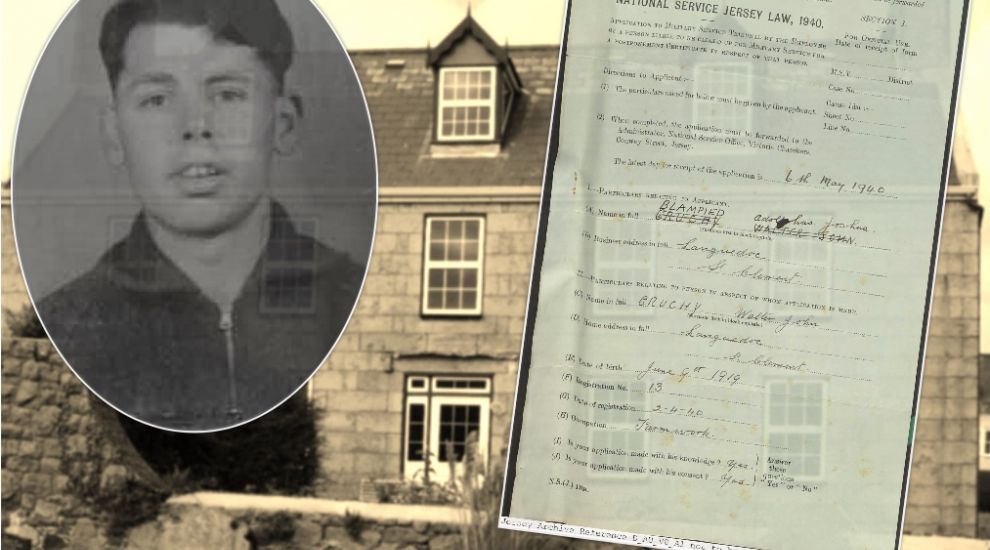

Jersey Archive has uncovered the story of how a large farmstead in St. Clement was at the centre of appeals to prevent two young farmers from leaving the island to go to war.
‘Your Home, Your Story’ is a new series of free talks at Jersey Archive that focuses on individual properties nominated by islanders wanting to know more about their home and the area they live in.
As part of the next upcoming talk at the Jersey Archive this weekend, Catherine Porter has shared part of her research on ‘Languedoc’, a large farmstead on La Rue Laurens, north of St. Clement’s Church...
Previously in the hands of the Le Neveu family, ‘Languedoc’ was sold to Pierre Gruchy in 1859 by Reverend Thomas Le Neveu.
By the time of the 1901 census, the farm was run by Pierre’s son, Walter, aged 35. The household included Walter’s wife, Eliza Jane Dolbel, and their children, Walter John and Lilian, as well as two servants, Jeanne and Jean.
When Walter passed away in the early 1900s, Eliza married again, this time to John Edward Hocquard.
Although he was a farmer in rural St. Clement, John also held business interests further afield. His will in 1944 shows that he had 27 shares in the Chicago Rock Island and Pacific Railway Company in America, which he intended to leave to his niece.
During the First World War, John and his stepson, Walter John, continued farming at ‘Languedoc’. They were aided by farm hands, including teenager Peter Blandin.
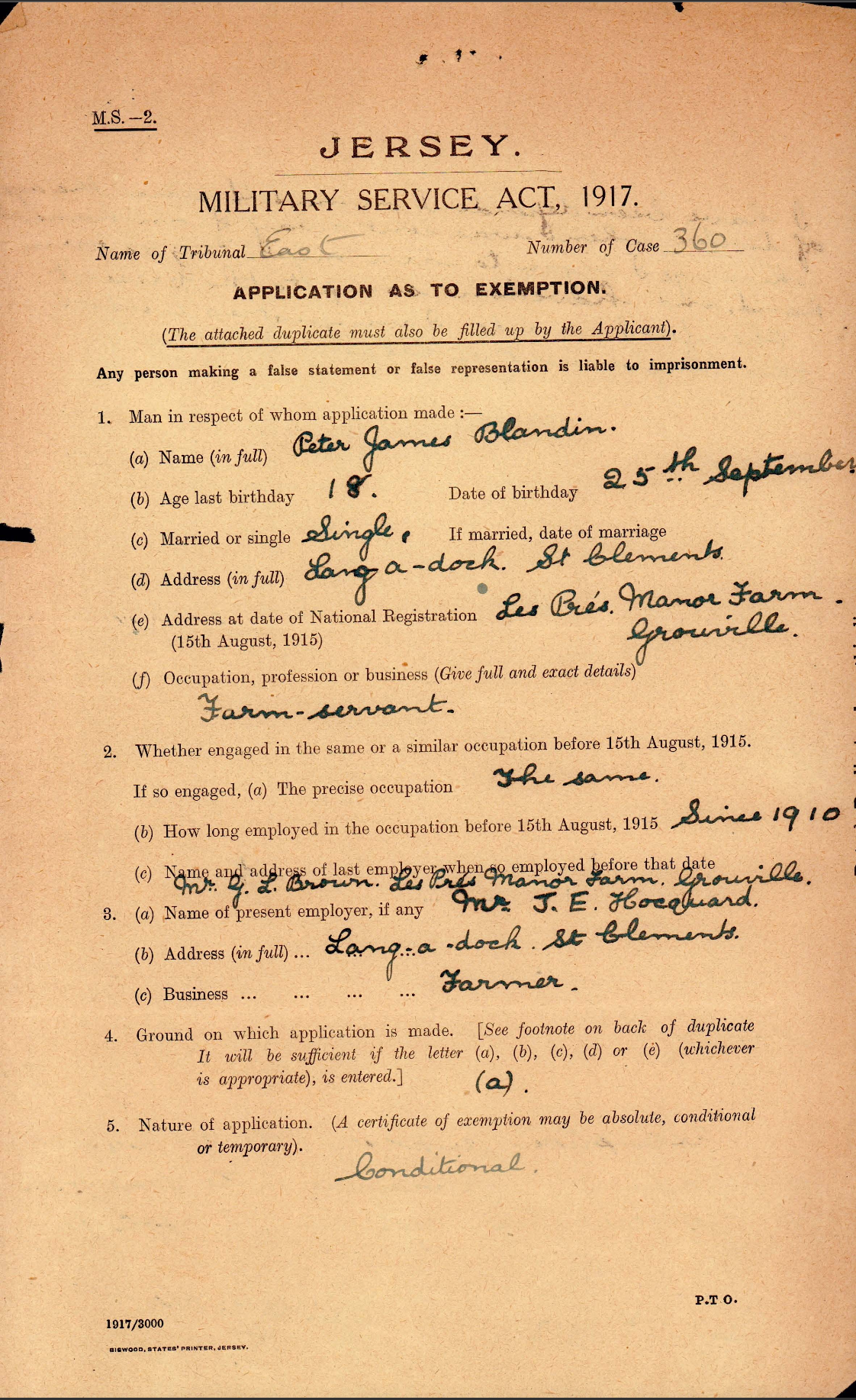
Pictured: The first page of Peter's application for exemption from military service.
In 1917, Walter John, now aged 25, and 18-year-old Peter were both called up to serve in the armed forces. John intervened on their behalf, citing the importance of both men to him as agricultural labourers. Walter John’s appeal was successful but Peter’s proved more difficult.
Papers relating to Peter’s appeals before the Military Service (Jersey) Act 1917 Central Tribunal include details supplied by both himself and John to support the application to postpone his military service.
Peter recalled being “sent away from home” at the age of 12, after which time he “began to earn [his] living as a farm hand”. He argued that, as a result, he was “just as useful in this employment of helping to raise food as in any other branch of the national service”.
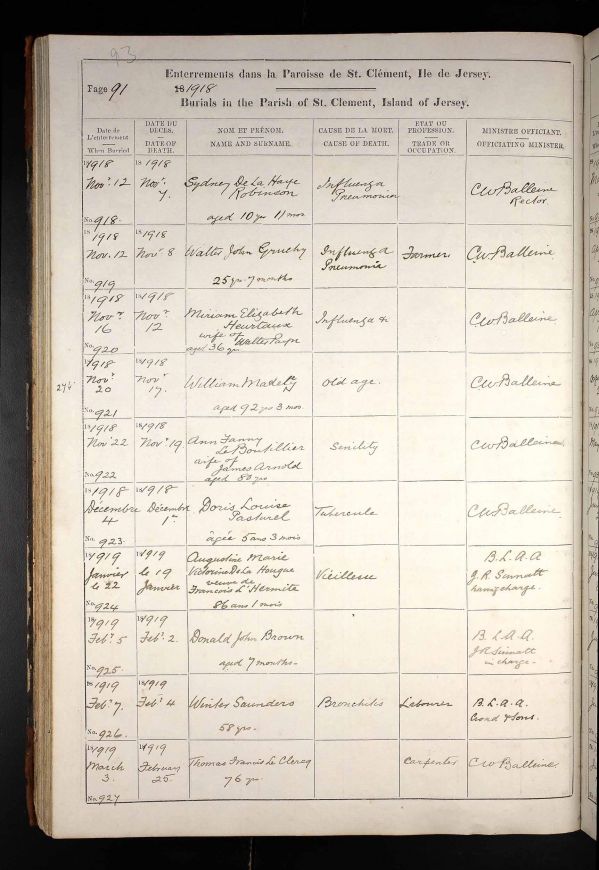
Pictured: Burial register for St. Clement, including an entry Walter De Gruchy.
The 1901 and 1911 censuses corroborated Peter’s recollections. As a toddler, he lived with his widowed mother in Grouville. By the age of 13, however, he was a servant living with his uncle’s family who farmed in St. Saviour.
John, as Peter’s employer, was afforded the opportunity to provide evidence in support of Peter’s application. He told the Tribunal: “I depend entirely on my stepson [Walter John] with the help of Blandin to cultivate the land”.
Peter’s application was initially unsuccessful, leading to a second attempt by John to intercede on the younger man’s behalf. This time, John provided further insight into the difficulties associated with farming at ‘Languedoc’.
He explained that he cultivated 38 vergées land but due to poor health “for the last four years… I have been unable to perform any arduous manual labour on the farm and have had to restrict my duties to supervising”. He added: “As the holding is very difficult to work I cannot possibly carry on my farming operations with less adult male labour than I now employ, vis: two men.”
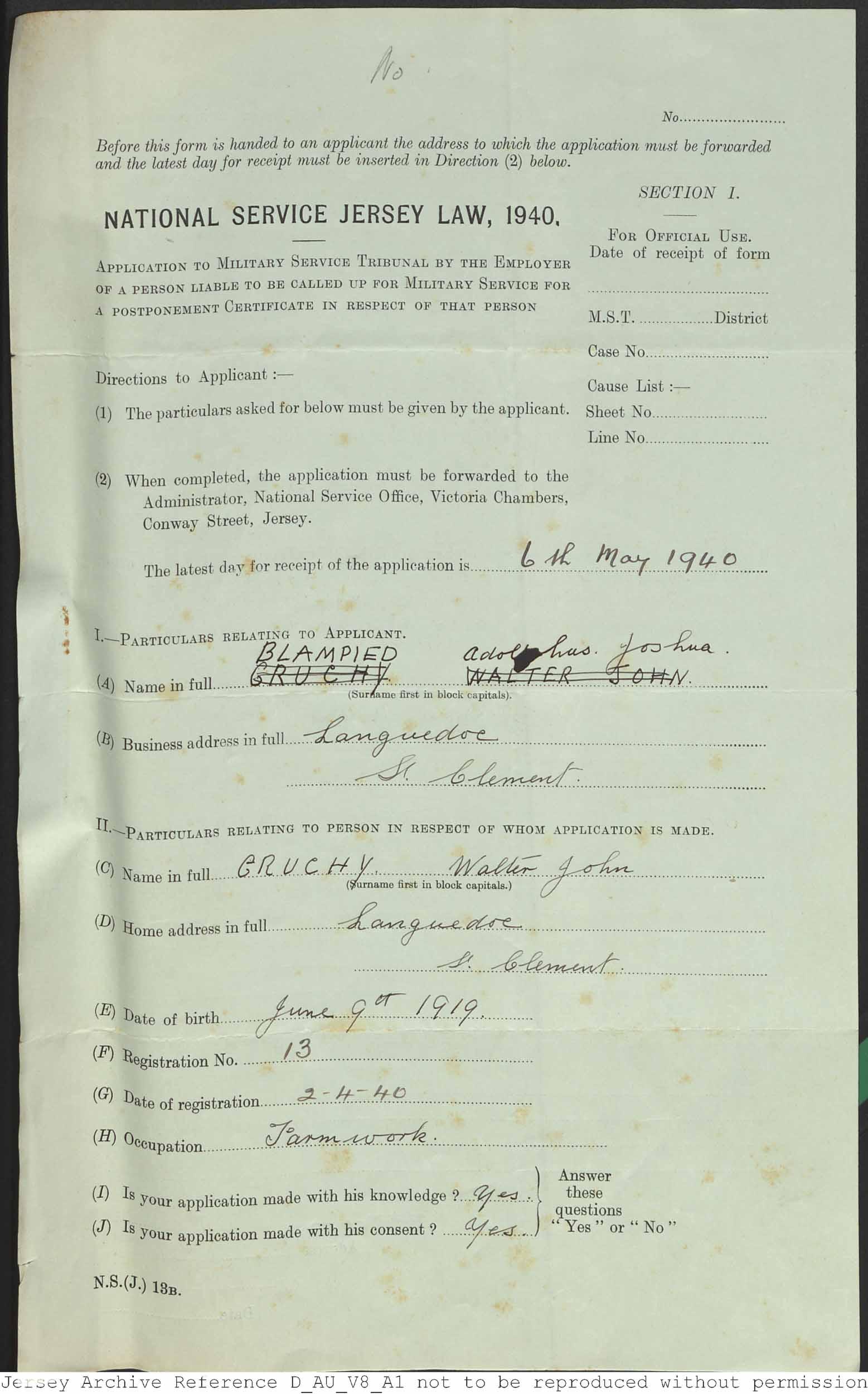
Pictured: Application for postponement of Military Service for Walter John Gruchy.
Despite this, Peter’s exemption was refused and he served as a Private in the Army until 1918. He returned to live in Jersey and remained in the Pontac area with his family.
Walter John’s exemption was extended until the end of 1917, but it is unclear whether he served after this.
However, records show that a ‘Walter John Gruchy’, described as a farmer, passed away in St. Clement in November 1918, at the age of 25 years and seven months. His cause of death, three days prior to the end of the First World War, was influenza pneumonia, not unlike others who passed away in the parish around the same time.
Walter John’s widow, Dorothy Ahier, gave birth to the couple’s son, a second Walter John, in June 1906. When Walter John junior was baptised at St. Clement’s Church, his godparents included his paternal step-grandfather, John, and his father’s sister, Lilian.
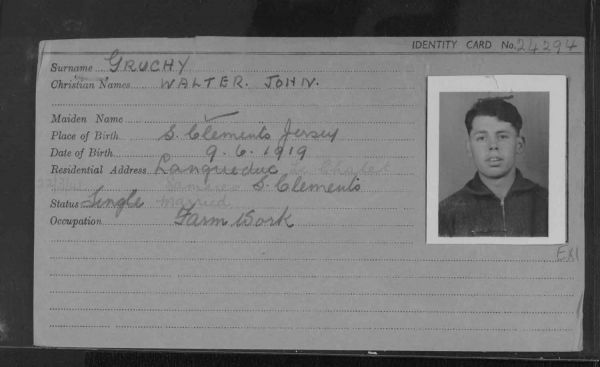
Pictured: Walter John Gruchy's registration card.
It was Lilian who continued to live at ‘Languedoc’ throughout the Second World War, along with her husband and their children. Whilst living there with his aunt in May 1940, and, echoing the acts of his father, Walter John junior applied for a postponement of military service.
The application was completed in conjunction with Lilian’s husband, Adolphus Blampied, himself a farmer. Adolphus said that Walter John junior was “required for help on farm, especially for tractor and lorry driving and help in care of potato and tomato crop”.
Whether Walter John junior’s application would have been successful or not, the arrival of the German occupying forces in July 1940 ensured that Walter John junior remained on the island until May 1945. During this time, he continued to farm and married his wife, Hazel May Renouf.
This article only touches on some of the research into the ‘Pontac to St. Clement’s Church’ area for the ‘Your Home, Your Story’ series.
If you would like to learn more, join Jersey Archive's free talk this Saturday (20 May) at 10:00. To book a place on the talk, call 833300 or email archives@jerseyheritage.org.
You can also uncover more stories by searching Jersey Archive's online catalogue here.
Comments
Comments on this story express the views of the commentator only, not Bailiwick Publishing. We are unable to guarantee the accuracy of any of those comments.